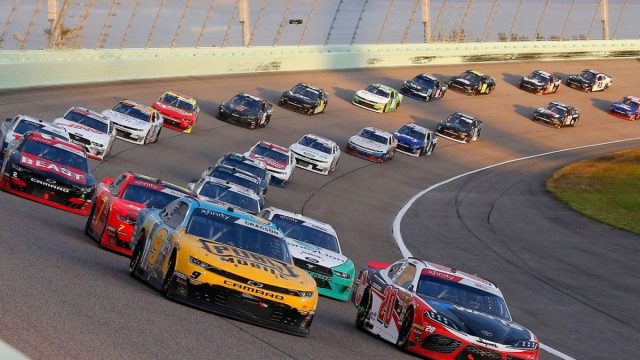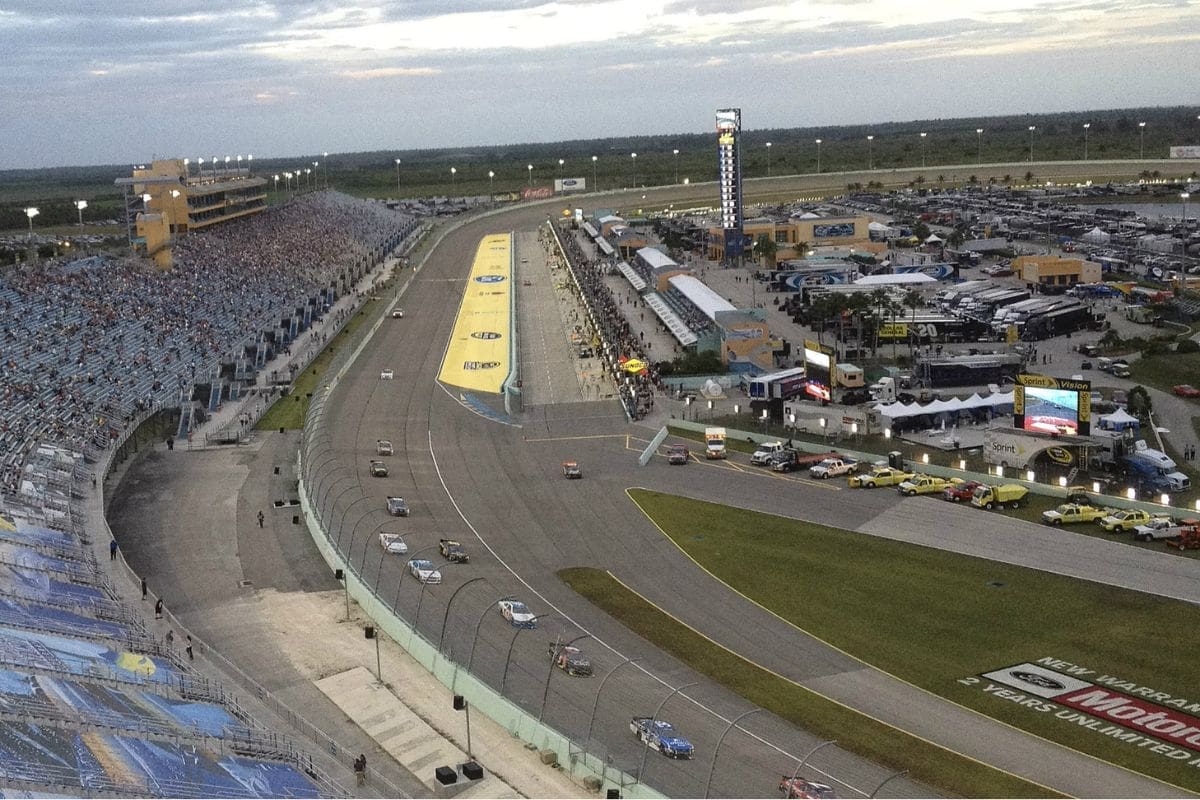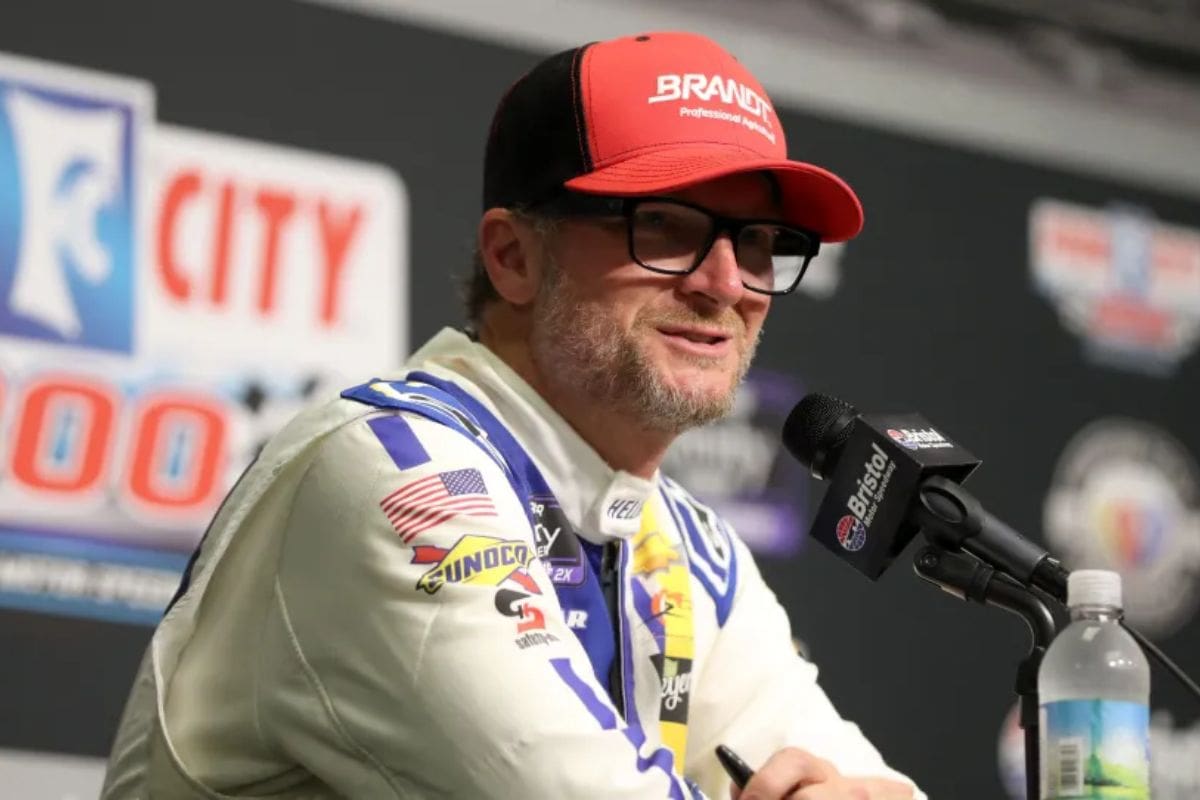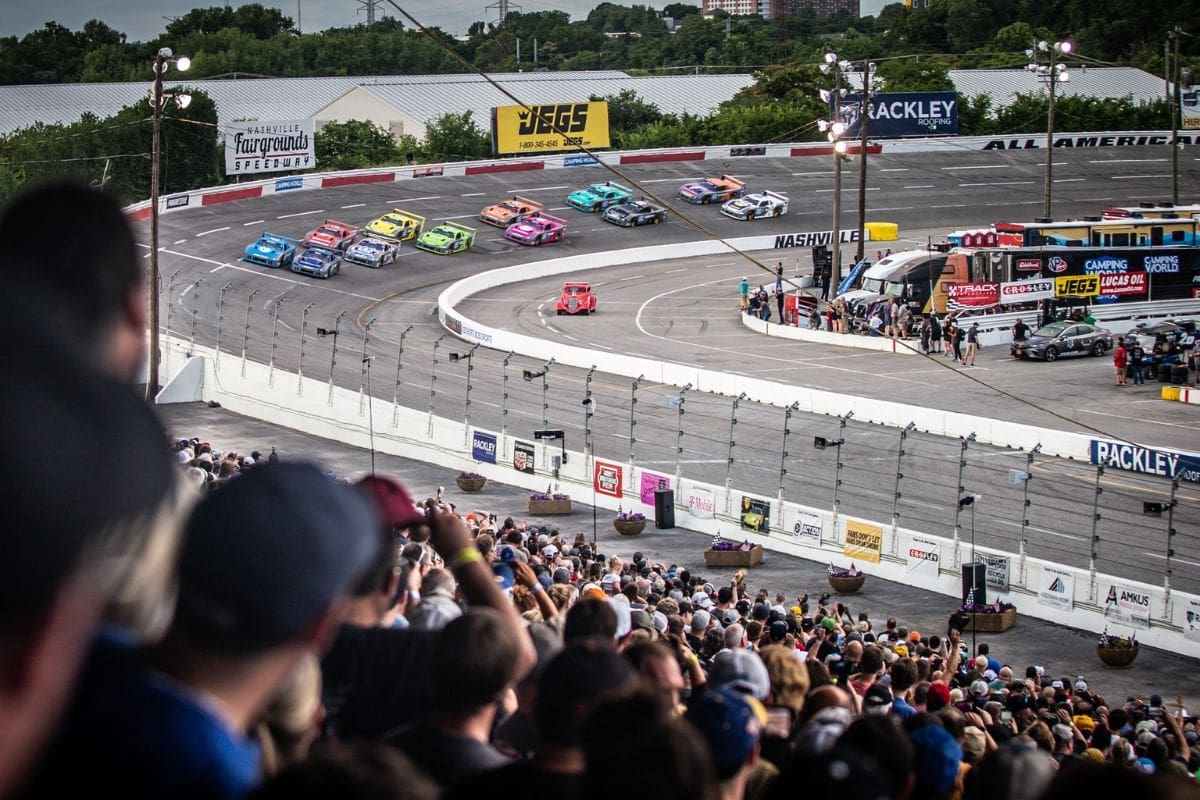NASCAR’s 2025 Schedule Controversy: The decision to exclude Homestead-Miami Speedway from NASCAR’s 2025 playoff schedule has ignited a complex dialogue among industry insiders, many of whom question the finality of this move. Historically, Homestead has served as a crucial championship venue, and its absence raises concerns about tradition and competitive balance. The push for varied race locations may signal a broader shift in NASCAR’s tactical approach as the sport evolves. However, whispers of a potential reconsideration for 2026 linger, suggesting that this controversy may be far from resolution. What factors might influence this evolving narrative?
Key Highlights
- Homestead-Miami Speedway has historically served as a championship venue, making its exclusion from the 2025 schedule controversial among fans and insiders.
- Dale Earnhardt Jr. expressed disappointment over the decision, emphasizing Homestead’s unique attributes and emotional significance for drivers and fans.
- There are ongoing discussions about the potential return of Homestead for the championship in 2026, fueled by dissatisfaction with current venues.
- City officials in Homestead are actively advocating for the return of the NASCAR championship, highlighting its economic and cultural benefits for the community.
- NASCAR insiders speculate that Homestead’s omission may not be permanent, suggesting a future reconsideration of venues and scheduling strategies.
Homestead-Miami Speedway’s Past Significance
Reflecting on its storied history, Homestead-Miami Speedway has long been an essential venue in the NASCAR Cup Series, particularly noted for its role as the championship finale for nearly two decades. The track ascended to prominence in 2002, establishing itself as the ultimate battleground for drivers vying for the coveted title.
Kyle Busch’s victorious 2019 achievement exemplifies this legacy; his declaration, “This one’s for Rowdy Nation,” resonated with fans, celebrating the peak of a season at a track that solidified his status as a multiple-time champion.
Homestead’s unique layout and variable weather conditions often produced thrilling races, showcasing driver skill and tactical insight. It became a stage where the season’s narrative converged, allowing for dramatic moments such as Martin Truex Jr.’s fateful pit stop that ultimately impacted the championship outcome.
For nearly two decades, the venue was synonymous with the intense challenges of the NASCAR Cup Series, embodying the spirit of competition that the sport is known for.
However, following the 2019 season, the decision to demote Homestead to the round of eight has sparked controversy among insiders. The rationale behind this shift, mirroring the rotational approach seen in other major sports, has yet to yield the anticipated excitement and engagement.
The steadfast placement of Phoenix as the new finale, extending into the 2025 schedule, raises questions about the long-term implications of sidelining a track that has been integral to the championship’s identity and history.
Homestead-Miami Speedway’s New Role
The recent reshaping of Homestead-Miami Speedway‘s role within the NASCAR calendar marks a notable alteration in the series’ competitive landscape. Previously a crucial venue for the playoffs, its removal from this context in favor of earlier-season dates has left many industry insiders questioning the decision.
Scheduled to host races on March 21st for the Truck Series, March 22nd for Xfinity, and March 23rd for the Cup Series, Homestead will now serve as a warm-up rather than a climactic showdown.
The decision to replace Homestead with Talladega Superspeedway for playoff rivalry is particularly striking, given the track’s longstanding reputation for producing thrilling and competitive racing. The 2023 playoffs highlighted this, with a gripping battle between Christopher Bell and Ryan Blaney showcasing Homestead’s capacity to deliver nail-biting finishes.
NASCAR journalists, including Dustin Long and Zach Sturniolo, have expressed disappointment over the track’s exclusion, emphasizing its unique characteristics that foster great racing.
“I think some people will be disappointed at least the competitors in losing a place like Homestead because everybody really liked that type of track and I think they’re still um you know some people would say that they’d like to see the finale back there at some point because of just the type of racing there. But you know maybe someday.” – Long
“I think that’s probably my one heartbreak of the new schedule is that we’re losing Homestead as a playoff racetrack.” – Sturniolo
Despite the change, Homestead’s legacy as the longest-hosting track of NASCAR’s finale remains unchallenged. This new role may limit its impact on championship narratives but positions it as an early-season battleground that could shape the direction of drivers’ seasons.
As NASCAR navigates this shift, the implications for team strategies and fan engagement will be closely monitored, revealing whether this decision improves or diminishes the collective competitive fabric of the series.
Dale Earnhardt Jr.’s Reaction
Expressing a mix of nostalgia and concern, Dale Earnhardt Jr. has vocalized his disappointment over NASCAR’s decision to remove Homestead-Miami Speedway from the playoff schedule. Acknowledging the historical significance of Homestead as a season finale venue, Earnhardt Jr. emphasized the emotional connection that both drivers and fans have developed with the track. He articulated that racing at Homestead has always been a highlight of the NASCAR season, noting, “It just doesn’t feel right to put it anywhere else in the season.”
“I’m disappointed about Homestead leaving the playoffs. We ran Homestead years ago early in the season and it felt weird after having the season finale there for so long. It just doesn’t feel right to put it anywhere else in the season.” – jr
Earnhardt Jr. also highlighted the unique attributes that make Homestead an ideal finale, asserting that it provides a thrilling resolution to the championship battle. While he recognizes that other tracks, including Phoenix Raceway, have their merits—especially given the latter’s recent renovations and local support—his sentiments accentuate a deeper affinity for the traditions that shape the sport.
The dynamism of Homestead, he argues, creates an unmatched racing atmosphere, making its absence in the playoffs particularly poignant. In expressing hope for a future return of Homestead to the championship schedule, he stated, “Is it the only track we can have the season finale at? No. But it was a great one.”
“Homestead is fun wherever we race it in the year. It’s a great finale. Is it the only track we can have the season finale at? No. But it was a great one and going back to that will be fun if that’s what happens.” – jr
This statement encapsulates his desire for the preservation of NASCAR’s rich heritage while also acknowledging the evolving landscape of the sport. Earnhardt Jr.’s perspective reflects a broader sentiment among fans and insiders who value the legacy and excitement that Homestead brings to NASCAR’s playoff narrative.
Potential Return in 2026
Frequently, discussions around NASCAR’s championship weekend have included the possibility of returning to Homestead-Miami Speedway in 2026. The current dissatisfaction with Phoenix Raceway, which has hosted the championship since 2020, emphasizes a broader desire for change among both drivers and fans. Many enthusiasts cite Homestead’s unique characteristics and competitive racing as compelling reasons for its reinstatement in the playoff format.
The momentum for this potential shift is gaining traction, as the City of Homestead has taken proactive steps towards securing the championship weekend. A resolution passed during a Homestead Council Meeting on April 17th indicates that city officials are committed to preparing a robust bid to host this prestigious event. Such initiatives reflect not only local governmental support but also a recognition of the economic and cultural benefits associated with hosting a NASCAR championship.
Moreover, the dialogue surrounding this potential return highlights the importance of venue selection in shaping the championship narrative. Homestead’s distinct track layout has historically provided thrilling finishes and memorable moments that resonate with audiences. This contrasts with the criticisms leveled at Phoenix, where the racing dynamics have not met the high expectations of stakeholders.
As 2026 approaches, the convergence of fan advocacy, driver preference, and municipal support could crystallize into a notable opportunity for NASCAR to reassess its championship venue strategy. If successful, the return to Homestead might not only rejuvenate interest but also reaffirm NASCAR’s commitment to its loyal fanbase, fostering a richer championship experience.
City Officials’ Support
Support from city officials in Homestead is vital in the movement to reinstate the NASCAR championship race at Homestead-Miami Speedway. The Vice Mayor, Sean Fletcher, has articulated a vision rooted in unity and tactical planning, emphasizing the potential economic benefits of bringing back this prestigious event. His resolution aims to harness collective efforts to address both immediate challenges and long-term opportunities that can drive the city forward.
“I’ve always believed that the power of unity and strategic planning and driving our city forward our collective efforts have consistently aimed at not only addressing immediate challenges. But also seizing long-term opportunities that promote economic growth, cultural enrichment and Community Pride tonight I offer for your approval a resolution that encapsulates such an opportunity and initiates bringing back the NASCAR championship race to our esteemed Homestead Miami Speedway.” – Fletcher
Fletcher’s advocacy highlights several key points:
- Economic Impact: The return of the NASCAR championship race could generate considerable direct spending in local businesses, revitalizing the economy.
- National Exposure: Homestead would be presented on a national scale, reinforcing its reputation as a capable host for major events.
- Cultural Enrichment: The race holds historical importance and could foster community pride by celebrating the city’s capacity for hospitality and cultural engagement.
“The Homestead Miami Speedway has historically been a beacon of economic and social activity drawing visitors by the thousands and significantly benefiting our local economy. The NASCAR championship race with its stored history and wide appeal stands to elevate these impacts to unprecedented levels this event would not only bring substantial direct spending to our local businesses but also Spotlight Homestead again on a national scale show showcasing our City’s capacity to host major events and our community’s warm hospitality.” – Fletcher
The implications of this championship race extend beyond mere financial gain; they encapsulate the essence of community spirit and pride.
As the city positions itself for a potential return of this coveted event in 2026, the alignment of city officials with the interests of local businesses and residents will be essential. Their proactive stance reflects an understanding that the NASCAR finale is not just a race; it is a catalyst for economic revitalization and community cohesion.
News in Brief: NASCAR’s 2025 Schedule Controversy
The ongoing debate surrounding the exclusion of Homestead-Miami Speedway from NASCAR’s 2025 playoff schedule highlights the complexities of race location dynamics. Historical significance and fan engagement may compel a reassessment of scheduling strategies. As stakeholders express skepticism about the permanence of this decision, the potential for Homestead’s reinstatement in 2026 remains plausible. Continued dialogue among insiders, city officials, and fans will be essential in shaping the future of NASCAR’s race venues and maintaining the sport’s rich heritage.
ALSO READ: Why NASCAR Is Rejecting Global Venues After Mexico City’s Comeback, VP Explains



